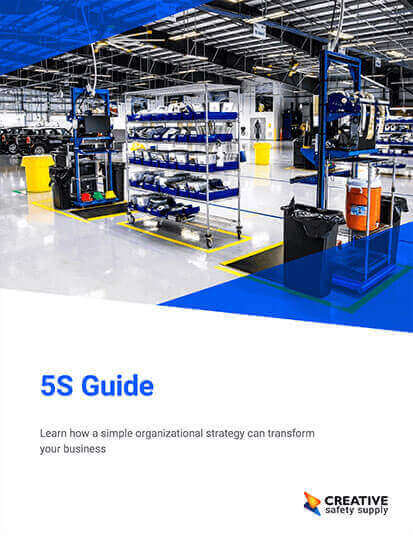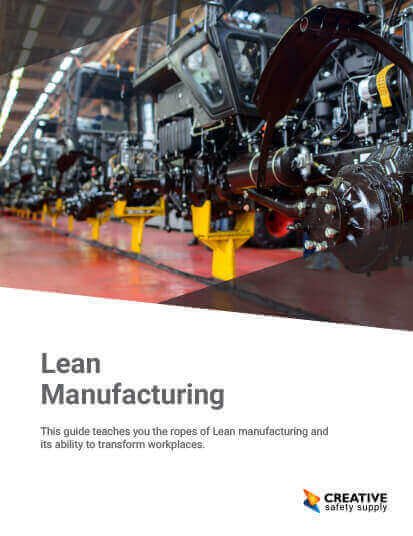
As a medium to describe Toyota’s business system, the term “Lean production” was the product of James Womack and the research team he led at MIT’s International Motor Vehicle Program. Truly an influential researcher, Womack was, and still is, an instrumental resource in transforming the workplace into one that is better equipped for efficiency and productivity through appropriate management.
Who was James Womack?

James Womack began his college career at the University of Chicago. He graduated with a bachelor’s degree in political science in 1970. Womack then continued graduate school at Harvard University where he received a Master’s in transportation systems in 1975. He finished his college career at the Massachusetts Institute of Technology with a Ph.D. in political science in 1982.
From 1975 to 1991 Womack was a full-time research scientist at MIT. One of the more notable adventures that Womack embarked on during his time at MIT was when he visited his first automotive manufacturing facility. He and his team flew all the way to Japan to visit “the Gemba,” AKA where the value is created, to study why Toyota was beating out large American car manufacturers such as Ford and General Motors. It was here that they learned about the Toyota Production System (TPS) and the overarching management system Japan used to create value.
Convinced that TPS was applicable anywhere rather than just being confined to the automotive industry, the team coined the term “Lean” to demonstrate its universal nature.
The Lean Enterprise Institute
Years after his publication of the book The Machine that Changed the World, Womack left MIT and went on to establish the Lean Enterprise Institute in 1997, also known as LEI. This educational resource was meant to distribute researched Lean related information to anyone looking to improve their workplace through events, training, and readily available web resources.
Womack, the founder, chairman, and CEO of the non-profit has since stepped down from his management position at LEI. Even though he has relinquished his management role with the non-profit, Womack is still participating through writing and research, and continuing to be a leader within the industry of Lean.
The Basics of Lean Thinking
If you’re unaware of what Lean entails, the first thing to remember is that it acknowledges mass production methods but takes the time to stop and fix mistakes to assure quality product. Let’s get into this a bit deeper.
There are three big points that Lean production provides under the correct circumstances, those include:

- The elimination of waste. Lean enthusiasts are acquainted with the term “the 8 wastes of Lean.” These include the following,
- Defects
- Overproduction
- Waiting
- Non-utilized Talent
- Transportation
- Inventory Excess
- Motion Waste
- Excess Processing
- Employee driven improvement, often called continuous improvement. Five of the most popular continuous improvement tools include:
- Following PDCA, which stands for Plan, Do, Check, Act
- Participating in Gemba walks
- Asking the 5 Why’s
- Adopting the Toyota Kata concept for training employees
- Becoming familiar with the 3 M’s, which includes Muri, Mura, and Muda
- Smooth communication efforts between departments as well as suppliers is a key component of reducing waste in the workplace as well as fostering continuous improvement.
These three aspects of Lean work together to create a continuous cycle of making the workplace more efficient, more productive, and of course, a better place to work.
Womack’s Impact Globally
The Machine that Changed the World was published in 1990. This book pushed James Womack into the spotlight. In short, this man changed how the world thought of manufacturing.
His book has been translated into eleven languages and has sold more than 600,000 copies worldwide. It was this publication that spread the word of Lean production globally.
Lean Solutions for Your Facility
As your resident experts in visual Lean manufacturing, Creative Safety Supply is here to help you start your Lean journey. We a good source all the visual communication tools you need to establish a safety culture at work that James Womack would be proud of. As well as one that allows you to focus more on the management side of things, knowing that your workers have all the information they need to stay safe.
SafetyTac® Floor Tape is an excellent option for facility managers that don’t want to bother with repainting lines every year after the paint chips away. Our industrial grade floor tape allows you to define pedestrian pathways, forklift lanes, mark where equipment belongs, and more! Not only that, but this tape is easy to install, has a low profile, and is extremely resistant to harsh industrial environments, making it one of the most durable floor marking tools on the market. If you are unsure as to what tape you should choose, take a look at our floor tape finder here.
Is your workplace plagued by cluttered tool benches or you finding any tool takes an excessive amount of time? This environment is not only inconvenient, but it’s dangerous. You can remedy the problem of unorganized tools with the help of our Foam Tool Organizers. By organizing your tools, you are eliminating waste involving time spent trying to find tools as well as eliminating excess movement for the employee.
Lastly, we want to make sure you have your facility and equipment marked with code compliant labels that meet both OSHA and ANSI regulations and standards. Pre-made labels are an excellent option for small improvement projects, but in the event you’re in the process of labeling your entire facility, it might be best to look into an Industrial Label Printer from LabelTac®. These industrial labelers come with a lifetime warranty, free technical support, and can label anything you need with over 60 types of label supply. Check out our Labeling Bundle Finder to find the best supply and printer for your situation.
Creative Safety Supply is here to help you with your Lean management strategy.
Similar Articles
- John Krafcik and the Birth of the Term Lean
- Kaizen and Lean Manufacturing
- 5S Lean Training
- 5 Lean Principles for Process Improvement
- Kaizen (Lean Continuous Improvement)
- 5 Lean Manufacturing Tools that Work
- Lean Manufacturing [Techniques, Solutions & Free Guide]
- GHS Label Creation
- 8 Wastes of Lean [A Guide to Manufacturing Wastes]
- Toyota Production System (TPS & Lean Manufacturing)


